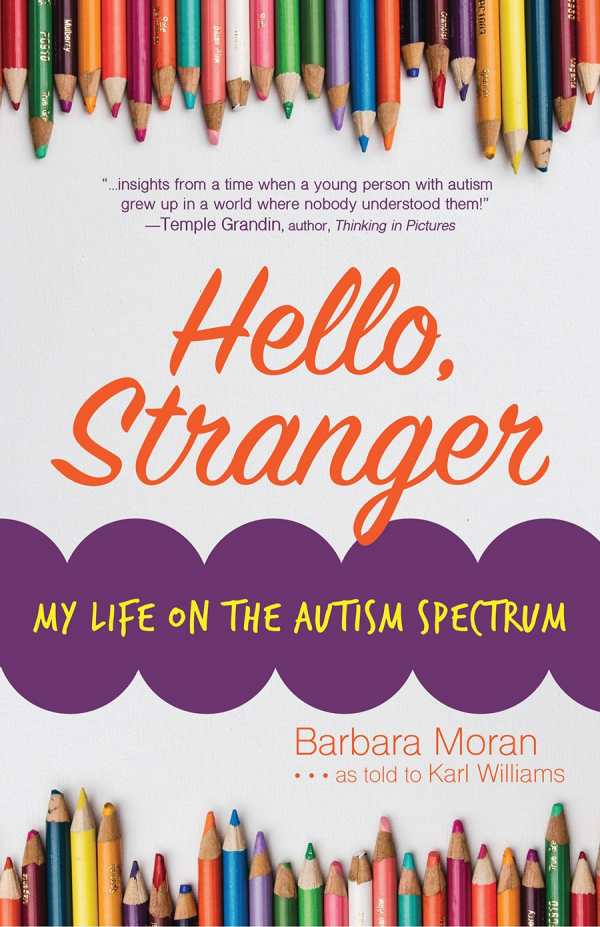Hello, Stranger
My Life on the Autism Spectrum
It’s impossible to see inside someone else’s mind to achieve true empathy, but Barbara Moran and Karl Williams’s Hello, Stranger comes close.
Born in the early 1950s, Barbara Moran felt out of place and lonely for the first few years of her life. Fond of inanimate objects and large buildings, she would pretend they were human and have conversations with them that she felt incapable of having with the people around her. Her tics, tantrums, and delayed development worried her family tremendously.
She was only ten years old when her parents sent her to Menninger’s, a clinic for mentally ill children, where she lived until she was eighteen. There, she felt as if she wore an “invisible straitjacket” every day, with doctors deeply misunderstanding her behavior and putting words in her mouth when they couldn’t comprehend what was really going on in her mind. “It was like I had been banished from society and I would be held hostage until I changed into somebody else—someone I could never be,” she says. Hello, Stranger describes every painful feeling stemming from her experience there—and the joyful experiences as well.
Narrated by Moran, as told to Williams, the book reads like a stream-of-consciousness diary reflecting back on years where Moran was more “in her own world” than a part of the outside world. The thoughts running through an autistic mind, unreachable to many doctors and family members, are portrayed here without judgement, fear, or self-consciousness. Moran’s language perfectly conveys the emotions, tics, and relationship needs she struggled to communicate and opens up the potential for further dialogue on the ever-changing treatment of autistic children and young adults today.
Much of the book focuses on her childhood at Menninger’s, which offers a perspective rarely explored in literature. Though the book skims over her adulthood much too quickly, the story is inspiring nonetheless.
Reviewed by
Aimee Jodoin
Disclosure: This article is not an endorsement, but a review. The publisher of this book provided free copies of the book to have their book reviewed by a professional reviewer. No fee was paid by the publisher for this review. Foreword Reviews only recommends books that we love. Foreword Magazine, Inc. is disclosing this in accordance with the Federal Trade Commission’s 16 CFR, Part 255.

